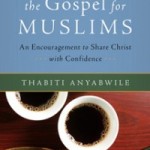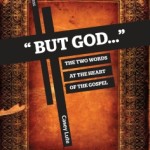I recently had the pleasure of taking a summer class on Church History and Philosophy with Dr. Stephen Nichols, respected professor at Lancaster Bible College and now a teaching fellow at Ligonier Ministries. The course required that I spend the better part of five days in a classroom with Dr. Nichols, and he made the experience a real joy. I was thrilled then when I found out he had a book coming out shortly after the course on Dietrich Bonhoeffer. I knew immediately this was a book I had to read.
Dietrich Bonhoeffer is a very interesting and polemical figure in church history. Progressive Christianity wants to claim him in their camp because of his focus on social issues and social injustice. Conservatives want to claim him because of his rock-like dependence on prayer, Scripture and the authority of Christ over our lives. The mistake we often make is trying to interpret Bonhoeffer as a 21st Century Evangelical. He was neither “progressive” nor “conservative” by our definition of the words. I am confident, were he alive today, that he would have criticisms for both camps.
For those not familiar with Bonhoeffer, a brief background is in order. Dietrich Bonhoeffer was a young German theologian who lived prior to and during the Nazi regime under Hitler. Bonhoeffer was first known for standing up against the German national church, which became a supporter of Hitler and his anti-semitism. Bonhoeffer and those like him branched off and started what became known as the Confessing Church. “These ministers and their parishes would swear allegiance to Christ – who was not Aryan – and not surrender the church to be captive to the political ideology of the Nazi Party” (pg. 33).
Later, Bonhoeffer became head of an underground seminary in Germany. He saw many of its graduates captured and killed under the Nazi regime. During this time, he wrote many now-classic books that define many principles for our time. These books include The Cost of Discipleship and Life Together, possibly the two most influential works on discipleship and christian community to our church today, respectively.
Bonhoeffer was arrested for his (debatable) involvement in a failed plot to assassinate Hitler. In 1943, just a few months after being engaged, he was arrested and imprisoned at Tegel. In 1944 he was transferred to the Gestapo prison in Berlin. He was martyred shortly before the war was ended.
after being engaged, he was arrested and imprisoned at Tegel. In 1944 he was transferred to the Gestapo prison in Berlin. He was martyred shortly before the war was ended.
In his book Bonhoeffer on the Christian Life, Dr. Nichols shows us why exactly Bonhoeffer is relevant to us today. This is not an annotated biography by any stretch. Rather, it is a survey of his theology given in Bonhoeffer’s context to help us understand why Dietrich is “worth meeting.”
He (Bonhoeffer) demands our attention – not like the tantrums of a two-year-old, but like the quiet, trusted voice of a wise friend…Bonhoeffer so well understood how to live because he so well understood the cross on which Christ died. Bonhoeffer also grasped the all-encompassing implications of the cross for human existence. He lived from the cross for the world. This is why he’s worth meeting (pgs. 22-23).
Praise
Dr. Nichols’ writing style is perfect for capturing a survey of Bonhoeffer’s theology. A master in history and reformed thought himself, Dr. Nichols knew the best way to lay out the text for the reader.
Beginning in Chapter 2, Nichols takes the reader through a survey of Bonhoeffer’s christology and ecclesiology. It is said that Bonhoeffer had a “Christo-ecclesiology”, that is, Bonhoeffer had both christology and ecclesiology at the center of his thought. It is upon this foundation that the reader will come to understand Bonhoeffer in a better light.
Nichols then takes the reader through a journey on Bonhoeffers doctrine of scripture, his thoughts on prayer, Bonhoeffer’s thoughts on thinking and living theologically, “Worldliness”, freedom camouflaged as service and sacrifice, and finally love.
I was very pleased to find that Dr. Nichols includes much thought into Bonhoeffer’s philosophy on seminary life and theological education. As a seminary student myself, it was fascinating to read of how Bonhoeffer ran his seminary ( playing soccer and going on long walks with his students, among other things). Bonhoeffer had a clear view on how theological education must be in service to the church, and must be lived out in life. These pages are a great reminder and read for any seminary student.
In addition, Dr. Nichols does not merely tell us what Bonhoeffer thought. Rather, Dr. Nichols includes application and his own thoughts for how Bonhoeffer’s theology should apply to our lives today. These little quips, while not often, were great to read and I loved finding these nuggets of wisdom. A couple of my favorites include:
- The church is not a hippy commune or hipster club. The sooner we come face-to-face with the disillusionment with others and the disillusionment with ourselves, Bonhoeffer adds, the better off we and the church are. There is a realism here that we should appreciate, and a realism that, once grasped, goes a long way in sustaining true and genuine community in the church (pg. 69).
- The first commitment (of Bonhoeffer) is what has been said already, that theology is in the service of the church. The second commitment is that theology must be lived out…The church as a whole and individual Christians suffer when we pit theology and spirituality or matters of Christian living against each other. We thrive when they work together (pg. 117).
What I loved most about this book was the way Dr. Nichols really makes the reader feel like he is reading Bonhoeffer in his context, and not just a book about Bonhoeffer. Dr. Nichols achieves this not only in his mastery over the historical events of Bonhoeffer’s life, but also in including a plethora of quotes from Dietrich himself. It was these many quotes that made Bonhoeffer come alive for me and helped me to understand who he was as a person, not just as a church figure. Some of my favorite Bonhoeffer quotes from the book include:
- I think we’re going to have an exceptionally good Christmas. The very fact that every outward circumstance precludes our making provision for it will show whether we can be content with what is truly essential. I used to be very fond of thinking up and buying presents, but now that we have nothing to give, the gift God gave us in the birth of Christ will seem all the more glorious; the emptier our hands, the better we understand what Luther meant by his dying words: “We are beggars, its true.” (pg. 30)
- We must not first ask what they (the Psalms) have to do with us, but what they have to do with Jesus Christ (pg. 108).
- We are not judges of God’s Word in the Bible; instead, the Bible is given to us so that through it we may submit ourselves to Christ’s judgement (pg. 87).
- In Jesus we have come to know the kindliness of the Father. In the name of the Son of God, we may call God our Father (pg. 107).
- He who denies his neighbor the service of praying for him denies him the service of a Christian (pg. 111).
- A seminary in which numerous students openly laugh during a public lecture because they find it amusing when a passage on sin and forgiveness from Luther’s On the Bondage of the Will is cited has obviously, despite its many advantages, forgotten what Christian theology in its very essence stands for (pg. 122)
- May God give (faith) to us daily. And I do not mean the faith which flees the world, but the one that endures the world and which loves and remains true to the world in spite of all the suffering which it contains for us. Our marriage shall be a yes to God’s earth; it shall strengthen our courage to act and accomplish something on the earth. I fear that Christians who stand with only one leg upon earth also stand with only one leg in heaven.
The reader of this review should note how clearly quotable this book is, which is a sign of how much I enjoyed the text. It is a struggle not to quote the whole thing.
Criticisms
If I had to pick one thing to interact with Dr. Nichols on in this text, its that one of his greatest strengths may be a crack into a weakness. While I appreciate all of what Dr. Nichols wrote, many critics might point to how much he includes thoughts from Reformed writers such as Luther or Calvin and claim that Nichols is assuming Bonhoeffer belongs in their camp. While I do not believe this is what Dr. Nichols is trying to do, Bonhoeffer is one of these polemical figures in Church history that people want to force us to take sides on. While I think Dr. Nichols does a sufficient job at interpreting Bonhoeffer in his proper context, others might think he is jumping to conclusions as to where Bonhoeffer fits theologically.
Conclusion
Bonhoeffer has much to say to the church of 2013. As I stated earlier, I do not think Bonhoeffer would pick any side in the current debate of progressive vs. conservative Christianity. Particularly in the American church, Bonhoeffer would have much to say to us today. In particular, I think Bonhoeffer would cringe over how little our church is marked by suffering. I don’t just mean physical or emotional suffering, but a suffering that marks us as truly different from the world, a suffering that shows that we really believe what we preach on Sunday. As he said of Union Theological Seminary in 1929, I believe he would also say of the American church today: “There is no theology here” (pg. 122-123).
Dr. Nichols really knocked this book out of the park by showing us how Dietrich Bonhoeffer is important and relevant to us today. Bonhoeffer is not merely a historical martyr and church figure, but he is a profound theologian and example of living out a serious committed Christian faith in light of insurmountable odds.
Bonhoeffer on the Christian Life is a book I would recommend and strongly encourage every Christian to get their hands on. It may be one of the most influential books you’ll read this year.




Can you elaborate for those of us who haven’t read this book?
“A seminary in which numerous students openly laugh during a public lecture because they find it amusing when a passage on sin and forgiveness from Luther’s On the Bondage of the Will is cited has obviously, despite its many advantages, forgotten what Christian theology in its very essence stands for (pg. 122)”
What would the subject deserving laughter be?